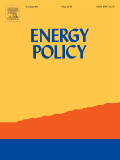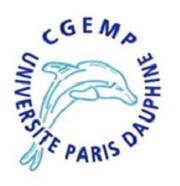
|
|
|
Previous Conferences > ISEFI-2014SCOPE International stock markets have been very volatile recently, owing their volatility in particular to the occurrence of the US subprime crisis in 2008 and the global financial crisis 2007-2009 as well as to other important economic and political uncertainties. The increased comovements between stock markets during bad times coupled with potential contagious effects have encouraged investors to use commodity assets as a hedge against increasing portfolio risks. They also incentivized policymakers to implement sound and rigorous regulations in order to avoid consequential harmful repercussions on commodity and financial assets. Among the commodity assets, energy products (mainly oil, oil-related and natural gas contracts) have attracted special attention from practitioners in terms of portfolio diversification because of their different volatile returns and low correlations with stocks (e.g., Arouri and Nguyen, 2010; Conovor et al., 2010; Daskalaki and Skiadopoulos, 2011; Hammoudeh et al., 2013). Undoubtedly, the liberalization of energy markets, which manifests itself by the increase in derivatives trading and financial investor activity, has made diversification strategies possible (Domanski and Heath, 2007; Dwyer et al., 2011; Singleton, 2012; Creti et al., 2013; Basak and Pavlova, 2013). Together with the above mentioned phenomena, as liberalization advances and environmental and energy derivative markets grow and develop, the interaction between energy and finance is becoming a critical issue. For instance, in the deregulated electricity and gas markets, risk management is complex and challenging. This phenomenon is amplified by the trading opportunities in carbon markets. More generally, energy commodities are becoming closer to financial commodities. In this context, more effective market supervision and improved monitoring competencies will need to be developed by the regulatory institutions. There is also a need to develop energy pricing models which account for equity-commodity risk spillovers, and economic and financial drivers of energy prices. This second edition of the International Symposium on Energy and Finance Issues (ISEFI-2014), jointly organized by IPAG Business School, EconomiX (University of Paris West Nanterre La Défense and CNRS) and CGEMP (University of Paris Dauphine), will shed lights on these issues, by bringing together researchers in economics, finance and econometrics.
KEYNOTE SPEAKERS Matteo Manera, University of Milano-Bicocca
SYMPOSIUM CO-CHAIRS Anna Creti, University of Paris Dauphine, Ecole Polytechnique & IPAG Business School
IMPORTANT DATES January 31, 2014: Deadline for submission of extended abstract
PUBLICATION OPPORTUNITIES A selection of high-quality papers submitted to the ISEFI-2014 Symposium will be published in a Special Issue of Energy Policy under the Guest Editorships of Anna Creti and Duc Khuong Nguyen. All papers must conform to the journal’s content scope and will be processed through the journal’s standard editorial review procedures. The theme of this Special Issue is “Markets’ Financialization, Risk Spillovers, Pricing Models and Their Relevance to Energy Policy”.
_____________________________________________________________________________________________
ORGANIZING INSTITUTIONS
|






